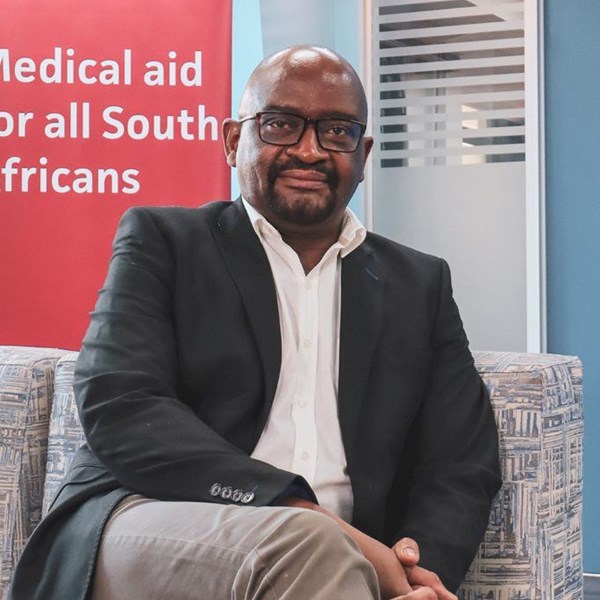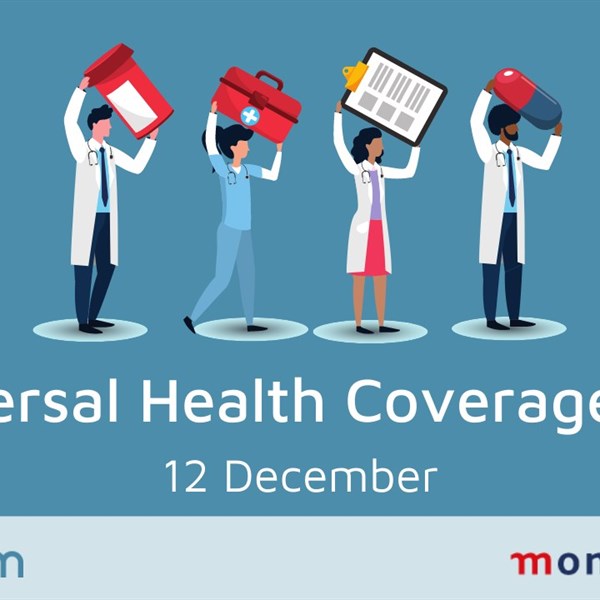
Dr Morgan Mkhatshwa, Head of Operations at Bonitas Medical Fund, unpacks the differences and similarities between ‘flu’ and Covid-19, how it affects your body and offers compelling reasons why you should consider getting the flu vaccine this year.
|
Dr Morgan Mkhatshwa, Head of Operations at Bonitas |
Every year, seasonal influenza (flu) kills around 11,500 people in South Africa alone. To date, Covid-19 has resulted in around 50,000 deaths in South Africa. While the true mortality of Covid-19 will take some time to fully understand, the crude mortality ratio (the number of reported deaths divided by the reported cases) is between 3-4%. For seasonal flu, mortality is usually well below 0.1%. However, mortality is to a large extent determined by access to and quality of healthcare.
How has Covid-19 impacted on the flu virus?
The Covid-19 pandemic has, however, had a significant impact on the 2020 flu season where decreased flu activity has been reported. This is most likely related to lockdown and additional hygiene measures. Bearing in mind that The World Health Organisation (WHO) has recommended flu vaccines for 2021, circulating flu viruses evolve constantly so an accurate prediction for the upcoming season is challenging.
Should you still have a flu vaccine in 2021?
Dr Mkhatshwa recommends you do. Flu vaccines have been shown to reduce the risk of influenza illness, hospitalisation and death. Not only will flu vaccinations reduce the risk of getting flu but is an important conservation measure for scarce health care resources which remains a concern with the ongoing the Covid-19 pandemic.
The flu vaccine should be given sufficiently early to provide protection for the coming winter. A protective antibody response takes about two weeks to develop. As there is limited evidence on the safety and effectiveness of receiving these vaccines simultaneously, Dr Mkhatshwa recommends waiting at least 14 days between having the Covid-19 and flu vaccinations.
How are Covid-19 and flu viruses similar?
WHO says, “Firstly, Covid-19 and influenza viruses have a similar disease presentation. That is, they both cause respiratory disease, which presents as a wide range of illness from asymptomatic or mild through to severe disease and death.
“Secondly, both viruses are transmitted by contact, droplets and any material that can carry infection. As a result, the same public health measures, such as hand hygiene and good respiratory etiquette (coughing into your elbow or into a tissue and immediately disposing of the tissue), are important actions all can take to prevent infection.”
What are the essential differences between Covid and flu?
Flu is an acute viral respiratory infection, transmitted by the influenza virus. There are three types of influenza, namely Influenza A, B and C. Influenza C is less common and produces milder disease. WHO says there are important differences between the two viruses and how they spread. This has important implications for the public health measures that can be implemented to respond to each virus.
The two are essentially different viruses with SARS-CoV-2 being a newly discovered coronavirus that causes Covid-19.
The speed of transmission
This is an important point of difference between flu and the coronavirus. Influenza has a shorter incubation period and can spread faster than Covid-19. Further, transmission in the first three to five days of illness, or potentially pre-symptomatic transmission, is a major driver of transmission for influenza. Although with Covid-19, people can be infected by someone 24-48 hours before the onset of symptoms – this is not the major driver of transmission.
The severity of illness
While the range of symptoms for the two viruses is similar, the fraction with severe disease appears to be different. For Covid-19, data to date suggest that 80% of infections are mild or asymptomatic, 15% are severe, requiring oxygen and 5% are critical infections, requiring ventilation. These fractions of severe and critical infection would be higher than that of flu.
Who is at risk?
The Department of Health (DoH) together with the National Institute for Communicable Diseases (NICD) targeted the following groups for the 2021 campaign:
- Healthcare workers
- Individuals age >65 years
- People with comorbidities like heart disease, diabetes or lung disease
- Pregnant women
- People living with HIV and AIDS
What are the signs and symptoms?
In terms of symptoms, Covid-19 and flu can have varying degrees of signs and symptoms, ranging from none (asymptomatic) to severe symptoms. Common shared include: Fever or feeling feverish/chills, cough, shortness of breath or difficulty breathing, fatigue, sore throat, runny or stuffy nose, muscle pain or body aches, headache, some people may have vomiting and diarrhea, though this is more common in children than adults.
Other signs and symptoms of Covid-19, different from flu, may include change in or loss of taste or smell. A Covid-19 test will confirm the diagnosis.
Does the flu shot give me a mild flu?
According to the Centre for Disease Control (CDC), “A flu shot cannot cause flu. Flu vaccines given with a needle are currently made either with flu vaccine viruses that have been ‘inactivated’ and are not infectious, or with no flu vaccine viruses at all. The most common side-effects from the shot are soreness, redness, tenderness or swelling where the shot was given. Serious allergic reactions to flu vaccines are very rare.”
Still not convinced?
Flu viruses spread very quickly from person to person.
- Even if the flu vaccine is not 100% effective against the current flu strain it will reduce your chances of getting the flu and, if you do get it, it will be a great deal milder.
- More importantly, by having the flu vaccine you will protect others, via what is called ’herd immunity’. Others may be vulnerable family members such as small babies and the elderly as well as those who are immune compromised.
While the world focuses on Covid-19, social distancing, wearing a mask and handwashing or sanitisation can help protect you from both Covid-19 and flu.








